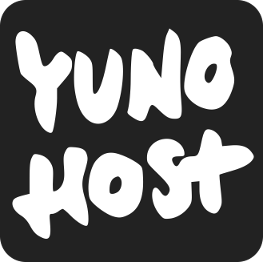Self-hosting has become increasingly popular as people seek more control over their data, privacy, and digital lives.
The concept of self-hosting is nothing new and theres a plethora of tutorials and videos out there to show you how to get started. What does seem to be fairly new is the explosion of personal cloud OS which provides a user-friendly interface for managing self-hosted applications, storage, and services on a local server or single-board computer (like a Raspberry Pi).
With domestic broadband speeds on the rise and fast, reliable connections becoming more common, there’s no better time to consider self-hosting your own services and moving away from the ever-increasing subscriptions offered by the big players.
Whether you’re looking for a simple way to run your own cloud storage, host applications, or even manage a decentralised network, there are several platforms designed to make the process easier.
This post explores some of the best self-hosted home server platforms available today, some of which I’ve tested and used, their pros and cons, pricing (spoiler most are open source with a few caveats), hardware options, and links to their official websites.

Umbrel
Umbrel is a user-friendly platform that transforms devices like the Raspberry Pi into personal servers. It provides a curated app store, allowing users to self-host applications such as Bitcoin and Lightning nodes, Nextcloud, and more. Designed for privacy and decentralisation, Umbrel is ideal for those looking for an easy way to manage their own digital space.
- Pros: Intuitive interface; extensive app selection; strong community support.
- Cons: Requires an external drive when running on Raspberry Pi; limited terminal access for advanced configurations.
- Cost: Free and open-source.
- Hardware Options: Compatible with Raspberry Pi and x86 architectures; offers pre-built hardware called ‘Umbrel Home’.
- My Thoughts: Polished and the slickest looking of the lot (very Mac Like), seems to be aimed at bitcoin bros but does have a wide range of general apps too. ⭐⭐⭐
- Website: Umbrel

CasaOS
CasaOS is a lightweight, open-source home server system that runs on top of existing Linux distributions. It offers a clean and intuitive dashboard, making it easier to manage Docker-based applications without needing deep technical knowledge.
- Pros: Lightweight; clean and user-friendly dashboard; simplifies Docker app management.
- Cons: Smaller app store compared to competitors; relies on custom Docker images for additional apps.
- Cost: Free and open-source.
- Hardware Options: Supports both ARM and x86 devices, including Raspberry Pi.
- My Thoughts: Stable with a good range of apps, simple UI with a strong community. ⭐⭐⭐⭐
- Website: CasaOS

Cosmos
Cosmos is an all-in-one secure platform designed for self-hosting applications. It acts as a secure gateway to your applications and serves as a server manager, aiming to address security concerns commonly associated with self-hosted environments.
- Pros: Focuses on security; integrates seamlessly with existing setups; automated maintenance.
- Cons: Relatively new with a growing community; may lack extensive documentation.
- Cost: Free and open-source.
- Hardware Options: Compatible with various hardware configurations.
- My Thoughts: Easy wizard-like setup, all-in-one security and reverse proxy, highly configurable but smaller selection of apps. ⭐⭐⭐⭐
- Website: Cosmos

YunoHost
YunoHost is a Debian-based distribution designed to simplify the self-hosting of web services. With a comprehensive app catalogue and an emphasis on ease of use, it makes server administration accessible to a broader audience.
- Pros: Wide selection of self-hosted apps; strong community support; beginner-friendly.
- Cons: Some manual configurations may be required for advanced features.
- Cost: Free and open-source.
- Hardware Options: Supports ARM boards like Raspberry Pi as well as standard x86 servers.
- My Thoughts: Good range of apps, growing community, slightly confusing user experience. ⭐⭐⭐
- Website: YunoHost

HomelabOS
HomelabOS is a collection of Ansible scripts that simplify the deployment of various self-hosted services. It allows users to set up over 100 applications with minimal configuration, catering to both beginners and advanced users.
- Pros: Includes a vast range of services; uses Ansible for easy automation; highly customisable.
- Cons: Steeper learning curve; primarily command-line based.
- Cost: Free and open-source.
- Hardware Options: Supports various hardware, from Raspberry Pi to full-fledged servers.
- My Thoughts: Not used or rated yet.
- Website: HomelabOS

Unraid
Unraid is a proprietary Linux-based operating system designed for home servers, allowing users to manage network-attached storage, applications, and virtual machines through an intuitive web-based interface.
- Pros: User-friendly interface; supports Docker containers and virtual machines; flexible storage management.
- Cons: Proprietary software requiring a paid licence; limited to x86_64 architecture.
- Cost: Paid licence with different pricing tiers based on the number of storage devices.
- Hardware Options: Compatible with standard x86_64 hardware.
- My Thoughts: Not used or rated yet.
- Website: Unraid

OpenMediaVault
OpenMediaVault (OMV) is a free Linux distribution designed for network-attached storage (NAS). Based on Debian, it offers a variety of built-in services such as SSH, (S)FTP, SMB/CIFS, DAAP media server, RSync, and more, with the ability to extend functionality through plug-ins.
- Pros: Extensible via plugins; supports multiple network protocols; active community.
- Cons: Web interface may feel outdated; some plugins require manual setup.
- Cost: Free and open-source.
- Hardware Options: Supports a wide range of hardware, including ARM and x86 architectures.
- My Thoughts: Not used or rated yet.
- Website: OpenMediaVault
Which Home Server Platform is Right for You?
Choosing the best home server platform depends on your technical expertise and requirements. If you’re looking for a beginner-friendly system with a strong focus on decentralisation, Umbrel is an excellent choice. For a lightweight, Docker-based home server, CasaOS is a great alternative. Those prioritising security may prefer Cosmos, while YunoHost and OpenMediaVault cater to users looking for extensive app support and NAS solutions.
For those who want a highly configurable server with automation capabilities, HomelabOS offers the flexibility of Ansible scripting. Finally, if you’re willing to pay for a more polished experience, Unraid provides a robust system with advanced storage management features.
With so many options available, you can easily find a platform that fits your needs and helps you take control of your digital life.
Have I missed any? I'll update this post as I try new platforms, so please let me know what you use!
Update: It was pointed out to me by @elborat on Mastodon that Proxmox was missing from the list. While I do use Proxmox, I view it as a powerful bare metal approach to the same problem. It typically requires more effort to set up and configure compared to the more user-friendly, out-of-the-box solutions mentioned above.
However, with resources like Proxmox VE Helper Scripts, the gap between powerful virtualisation platforms like Proxmox and personal cloud operating systems, such as those mentioned, narrows significantly.

